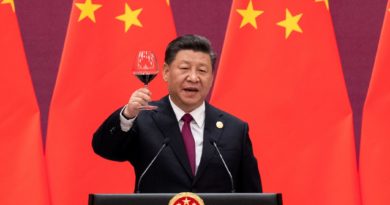OP ED Editorial | Edsa is for the young
.

As custom dictates, Filipinos of a certain age will spend the 25th of February performing their annual rite of self-reflection — and self-flagellation — about the historic events remembered on this day. In the protest-filled streets or in the comfort of their homes or workplaces, many will invariably ask: Did we learn our lesson from the 1986 Edsa People Power Revolution?
The easiest way to answer this, of course, is by looking at the current occupant of Malacañang: Ferdinand Marcos’ son and namesake, whose ascent to power through a landslide victory in 2022 seemed to extinguish the dying embers of revolution that galvanized our people one year shy of four decades ago, today.
That the second Marcos administration sought to downplay the memory of Edsa through bureaucratic rigmarole wasn’t lost on the public at large.
Yet, history has a funny way of resisting erasure.
One might even say Malacañang’s decision to downgrade Feb. 25 into a mere “special working holiday” has sparked the opposite effect. Instead of sinking into obscurity, the spirit of Edsa seems to have made a resurgence, not in the weary hands of its veterans but in the clenched fists of young people who weren’t yet born in that period of tempest and turbulence.
Gen Z and millennial generations
These modern, bright-eyed Filipinos, members of the Gen Z and millennial generations, grew up in a Philippine society far different from the one before it, where online disinformation is the norm and historical facts have given way to hoaxes. At the same time, it’s the same familiar society where corruption thrives and the powerful involved in plundering our coffers evade accountability.
But rather than succumbing to apathy, as many of those of the Edsa generation have done, today’s youth are taking up the fight.
Last week, several schools and universities announced class suspensions for the Edsa observance, joining more than 70 activist and civil society groups who planned to congregate at the People Power Monument on the historic thoroughfare. Defying official policy, the schools, among them the Immaculate Conception Academy, La Salle Green Hills, Saint Pedro Poveda College, and Xavier School, said they would observe the date as a special nonworking holiday. In response, the Student Council Alliance of the Philippines implored other school administrators to take similar action.
Other bastions of campus activism, like De La Salle University and University of Santo Tomas, canceled classes to mark the occasion; Ateneo de Manila University organized commemorative activities, while the University of the Philippines, under pressure from its youthful constituencies, declared an “Alternative Education Day.”
A subtle willingness
Recall that last year, the Edsa anniversary was not even included among the official national holidays, and this year, Feb. 25 was designated as a special working holiday, unlike remembrances past.
That Malacanang would consign to oblivion the peaceful uprising that ousted Marcos Sr. after a 20-year rule was only to be expected. But in the early days of President Marcos’ presidency, he had shown a subtle willingness to acknowledge historical wrongs. In a rare message on Feb. 25, 2023, the President said: “As we look back at this fateful moment in our country’s history, we remind ourselves that despite the polarizing and divisive nature of our politics, it is our capacity for peace, unity, and reconciliation that made us great and worthy of global acclaim as a people.”
Today’s protest themes, led by aging martial law survivors and their dewy-eyed descendants, are just as piercing and urgent as 39 years ago: Why do billions in public funds flow unchecked among high officials while ordinary Filipinos struggle to make ends meet? Where lies accountability for the unbridled squandering of taxpayers’ money?
Living proof
Lawyer Jojo Lacanilao of the Duterte Panagutin Campaign Network put it eloquently: “We saw everything. The torture, the plunder, [all] kinds of evil … (and yet we failed) to fix the education [system] to teach the right history for future generations.”
The result? Another Marcos is back in power after successfully rehabilitating the family name; another Duterte is seeking to follow in her father’s own bloody footsteps. But there is hope: A new breed of young Filipinos is waking up to the realization that the fight their forebears began must continue.
“People Power is alive,” said former Bayan Muna Rep. Teddy Casiño, and it burns bright indeed in the hearts of the children and grandchildren of those who once stood shoulder-to-shoulder on Edsa. How fitting, too, that the torch of activism is now carried by people who weren’t there, but who understand the gravity, and irony, of that immortal catchphrase – “never again.”
These young Filipinos are living proof that Edsa was never about the past, it is about the present, and more importantly, the future.









